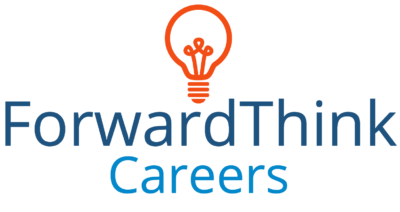

After weeks or months of applying for jobs and networking your butt off, landing an interview can feel like winning the lottery. But while you might be tempted to pop the champagne, this is the moment where the real work begins.
The interview process has definitely evolved over the years. There are video interviews, panel interviews, group interviews, case interviews…the list goes on. Some interviews clock in under 30 minutes. Others last all day.
But one thing you can count on is that you’ll likely get asked at least one of these notoriously tough questions. Let’s take a look at what motivates employers to ask these questions and the best way to approach them.
Tough Interview Question #1 – Why Are You Leaving Your Current Employer?
This seemingly innocent question can be a potential minefield for candidates. Employers ask it to get a sense of what your current grievances are and why you might leave them down the road. If you seem like a job hopper or difficult to please, this could be a red flag.
First off, never, ever trash-talk your current company, supervisor or position. It might be tempting to “vent” your frustrations with your current situation as a way of demonstrating your interest in this opportunity, but this approach will only backfire.
Instead, stay positive, and talk about your desire to gain new skills, take on new challenges, etc. It’s best to frame it as taking the next step forward in your career, versus freeing yourself from your current situation.
Tough Interview Question #2 – What Do You Consider Your Greatest Weakness?
Most. Dreaded. Interview. Question. Ever. What employers are really looking for is self awareness. They know we all (they themselves) have weaknesses, so the worst thing you can say is “I don’t have any.” Other answers to avoid are “I work too hard” or “I’m a perfectionist.”
So what’s the best way to respond? A wise approach is to mention something that you’re working on — that you’re aware is not your strong suit and that you’ve been taking measures to improve upon. Maybe it’s a certain technology, or contributing in meetings, or delegating.
You want to show them that, historically, this is something that has been a struggle for you, but you’ve been taking steps to remedy it. You might not be there yet, but you’ve made substantial progress. This way they know you’re dedicated to self-improvement and aren’t living in denial about it.
One thing to note, if the skill set you consider a weakness is something that’s absolutely essential to the job, you probably aren’t the right fit for the position and should move on in your search.
Tough Interview Question #3 – Tell Me About a Time When You Made a Mistake
Similar to the weakness question, you don’t want to say that you never make mistakes. Employers know that everyone makes mistakes from time to time. What they care about is how you handle them — how you correct them and move forward.
When answering this question, you’ll want to break it into three parts. First, clearly explain the mistake you made. Don’t try and downplay it or deny culpability. Calmly own it. Next, walk them through the steps you took to correct it.
And lastly, talk about how making that mistake taught you a lesson — maybe it led to changing a process or procedure, asking a colleague to be a second set of eyes on something, or triple-checking an important email before hitting send. Whatever it is, you want to demonstrate that you’re now a better professional for it.
One note: when choosing the mistake to talk about it, it should probably be about a 5 on the scale of 1 (completely benign) to 10 (landed you in jail).
Tough Interview Question #4 – Tell Me About a Time When You Had a Conflict With a Colleague or Supervisor
This question can be a doozy but it actually has similar components to the mistake question. Employers are trying to get a sense of how you act in the face of conflict. Because let’s be honest, no work environment is 100% conflict free. There are different personality types and communication styles at play, and sometimes things can get, well…tense.
In answering this question, be very careful not to blame, bash or complain. You definitely don’t want to throw a coworker or boss under the bus, or the interviewer might think you’ll eventually do the same to them. In thinking through the situation, ask yourself — was it perhaps a misunderstanding? Or maybe a difference in opinion or work style? Make sure to take some of the blame for the conflict. Employers know there are two sides to every story!
You also may want to employ the Experience, Learn, Grow model. Similar to the mistake question, the goal is to calmly and truthfully explain what you experienced, what you learned from the experience, and how you grew as a professional. Find a way to end it on a positive note, and you’ll put the interviewer at ease.
Tough Interview Question #5 – We Have Several Qualified Candidates for This Position. Why Should We Hire You?
This question is exactly what it sounds like. The interviewer is looking for a sales pitch. They’re essentially asking you to make their job easier by having you convince them you’re the right candidate. And, of course, you have no idea what these other candidates bring to the table. So you can only demonstrate what you bring.
This is where your understanding of the position and the department’s biggest pain points comes into play. They need to hire a problem solver who will tackle their most urgent problems as efficiently and effectively as possible. So this is no time to speak in vague generalities or only focus on how “passionate” you are about the industry. Instead, give concrete examples of how you were successful in solving similar problems in the past.
The best way to frame your answer is using the PAR model – Problem, Action, Result. Describe a concrete problem similar to what they’re facing. Then, walk them through the specific actions you took to solve that problem. Finally, show them the result in terms of metrics, if at all possible. Maybe you increased sales by 20% or reduced redundant processes by 35%.
This form of storytelling gives the interviewer a visual they can remember you by. And when it’s time to make a decision, you stand out as a top candidate.
As you can see, these challenging interview questions are nothing to sneeze at. But if you anticipate them and do your homework in advance, you’ll walk in relaxed and ready to take on anything they throw your way.



